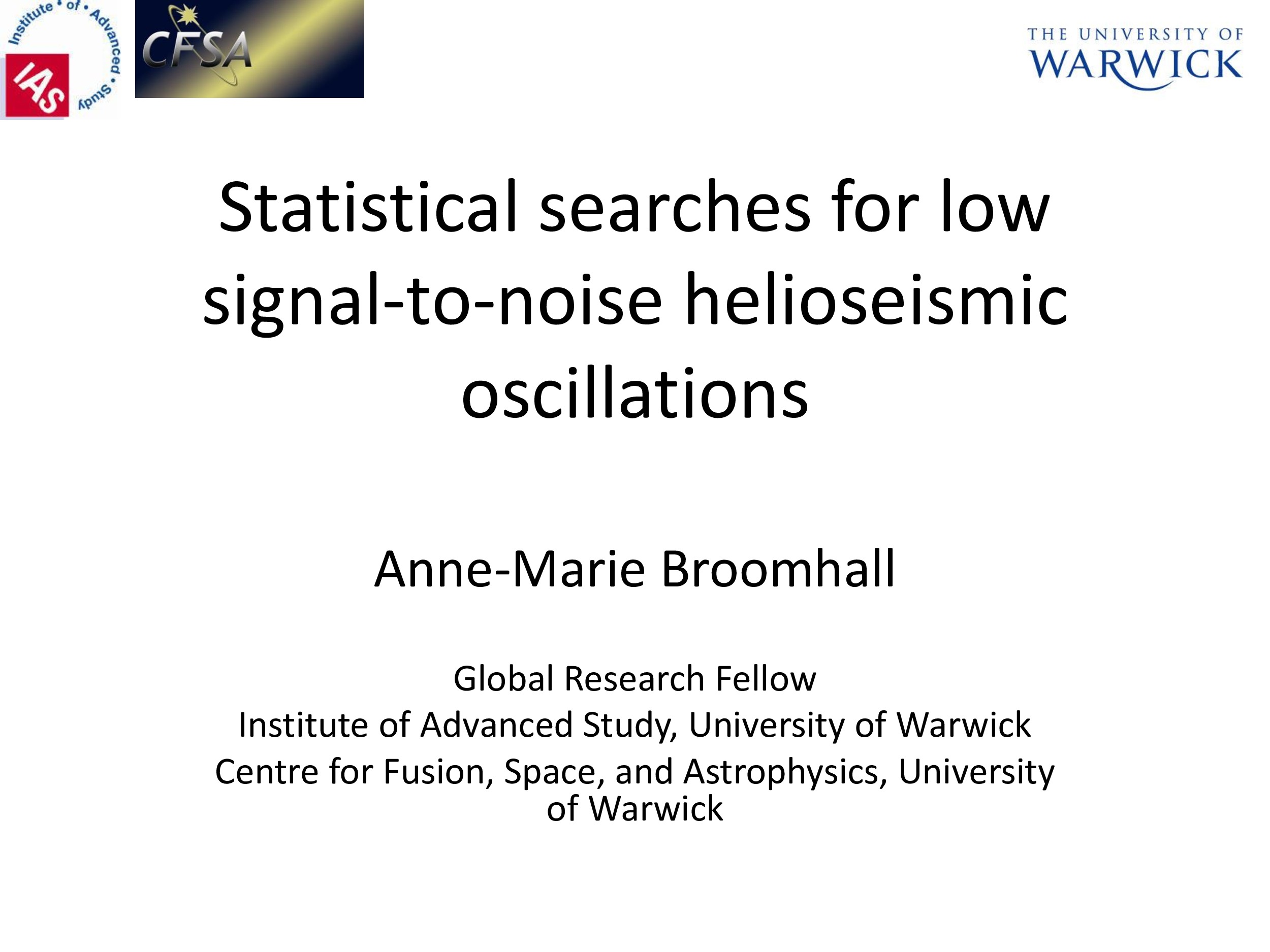Main category
Natural Sciences (Astrophysics and Astrononmy)
Abstract
Low-frequency solar p modes have long lifetimes and, therefore, narrow peaks in frequencypower
spectra. This allows their frequencies to be obtained very precisely, making them useful
inputs for inversions of the solar interior. However, these low-frequency p modes have limited
sensitivity to the solar core, which is still relatively poorly constrained. Mixed and gravity
modes, on the other hand, are far more sensitive to core regions. Low-frequency p modes,
mixed modes, and gravity modes are all difficult to detect because they have relatively small
amplitudes and because they are swamped by solar noise from, for example, convection. We
have developed statistical techniques to try and uncover these low signal-to-noise modes. We
have then used these techniques to search for previously undetected low-frequency
oscillations in BiSON and GONG data, considering the data sets both individually and
contemporaneously. To uncover the modes we have developed both frequentist and Bayesian
approaches. The developed techniques are very flexible and could be useful for asteroseismic
studies as well as helioseismology.
Do you have problems viewing the pdf-file? Download presentation
here
If the presentation contains inappropriate content, please
report the presentation. You will be redirected to the landing page.
